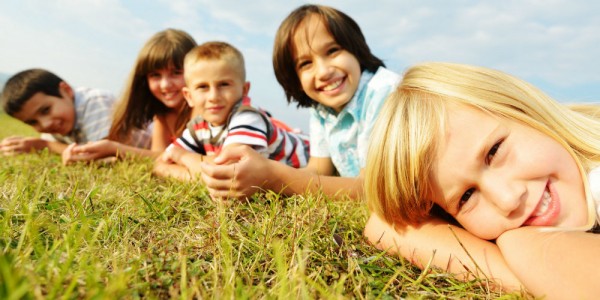Environment/Background/Care
- Why is this child not living with his/her biological parents?
- How old was the child when he/she came into care?
- Are there siblings?
- What is known about the birth parents?
- What has the child been told about his/her birth family?
- When was his/her last contact with them?
- When was the last time the child saw members of the birth family?
- Where there any changes in behavior or attitude after contact?
- Any continued contact with friends, family members, etc? To what extent?
- Number of previous placements?
- Why did the child have to move?
- Have there been previous disruptions adoptions, or disrupted pre-adoptive placements? If so, why?
- Has the child shown the ability to bond with his/her caregiver? Teacher? Other children in the home?
- Can we speak to current/previous caregivers?
- Cultural background?
- Religious affiliation? Regular church or Sunday School attendance?
Functioning in the Family
- How has the child adjusted to his/her current home?
- How does the child handle routine expectations/chores?
- How is he/she about expressions of affection, about touching?
- Does he/she prefer men to women, women to men?
- How does he/she take care of possessions?
- How well does he/she get along with other children in the household?
- Does he/she prefer same age, younger or older playmates?
- What is a typical day like for him/her?
- What type of discipline works best for him/her?
- What doesn’t work for him/her?
- What problems have occurred at home that you feel we should be aware of and how did you handle them?
- Have there been any behaviors we should be aware of such as wetting the bed, aggression, terrible nightmares, etc.?
Self
- What kinds of feelings does the child have about him/herself?
- How does the child handle failure, stress, happiness, anger, pain, anxiety?
- Is the child aggressive towards caregivers or other children?
- What strengths does the child have ?
- Does the child have a nickname?
- How well does he/she communicate?
- Can he/she talk about his/her feelings?
- Are there specific things he/she is afraid of?
- How does he/she handle these fears?
- What is his/her experience with animals (dogs, cats, etc.)?
- How does the child’s emotional age compare to his/her chronological age?
- Does the child have a history of making false allegations of abuse?
Interests/Play
- What does he/she like to do with his/her spare time?
- She he/she play alone or with others?
- What kinds of play does he/she avoid?
- Special interests, favorite toys, favorite TV shows?
- Specific likes/dislikes?
- Any sports or organized activities?
School
- Academically, is he/she strong, average, weak?
- How well does he/she get along with his/her teacher, other kids?
- Any areas of concern or struggle?
- IEP in place? If so, why? When was it last updated?
- Learning disorders?
Medical
- How is the child’s physical and emotional health?
- Are his/her immunizations up-to-date?
- Regular dental care?
- Hearing/vision status. Need glasses?
- Allergies?
- On any medications? What for?
- Doctor’s name and phone?
- Any ongoing medical issues?
- Any fear of doctors or dentists?
Development
- Developmental levels:
Social/emotional:
- Psychological diagnosis?
- Neurological diagnosis?
- Is the child in therapy? How often?
- Therapist’s name and phone?
- What has the child been told regarding sex?
- Any sexual acting out? If so, how/when does it occur?
- Any history of sexual abuse?
Eating Routines
- Are there any feeding difficulties, table problems?
- Any food allergies or special diet?
- Is the child a picky eater?
- Eating habits changed?
- Likes/Dislikes?
- Sleeping Routines
- Bed wetting? Nightmares? Sleepwalk?
- Bed time routine? Difficult to get to sleep?
- Sleep with a special object or night light?
Self-Care
- Dress him/herself, pick out clothing?
- Bathe him/herself, tooth brushing, hair care?
Adoption Issues
- What does the child understand about adoption? Foster care?
- Has the child mentioned what he/she would like in a family?
- Has the child been told about adoption and what that would mean to his/her situation?
- How does the child feel about being adopted?
- When it is time to move the child, are there any items that you may already know we will need to have in our home? (Items like bikes, scooters, toys, etc.)
- Is there anything you would like to know about us to help you prepare the child when the time comes?
Other Thoughts
You have a right to information on the birth family’s medical and mental health history.
Do not discount genetics in a child’s history. The more information you have, the better you will be able to care for your child. There are the obvious questions that you will want answers to, such as family history of cancer, diabetes, hear disease, high blood pressure, etc., but you will also want other medical and social background on your child’s family.
- Other family members adopted
- Ethnic background
- Family height and weight
- History of drug or alcohol abuse
- History of suicide
- Any mental illness or emotional problems
- Allergies- food, medicine or seasonal
- Stomach problems or ulcers
- Eczema, psoriasis or other skin conditions
- Mental retardation or Down’s Syndrome
- Seizures or convulsions, Epilepsy
- Any problems with pregnancies or deliveries
- Arthritis or other bone and joint disorders
- Tuberculosis
Also ask for developmental information that you would have on your own child. When did she first start crawling, eat solid foods, take first steps, etc. These give a good history of possible developmental delays, learning disorders, or things like sensory integration disorder and visual or auditory processing disorder. This information may not be readily available, but if it is possible, get the information.
